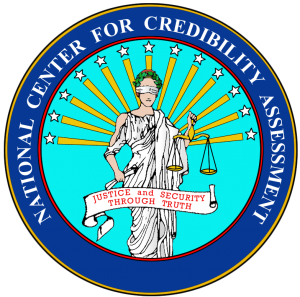 AntiPolygraph.org has received an archive of National Center for Credibility Assessment (NCCA) documents about polygraph countermeasures.
AntiPolygraph.org has received an archive of National Center for Credibility Assessment (NCCA) documents about polygraph countermeasures.
We begin publication with an undated “white paper” titled “Timeline Detailing the Countermeasures Classification Issue” (288 kb PDF). Metadata in the Microsoft Word version (140 kb DOC) of the document indicates that it was created on 15 August 2012 by NCCA Quality Assurance Program chief Gary Light.
The white paper argues that “CM [countermeasure] detection information from its inception has been researched, developed and implemented in an unclassified environment. CM procedures were not, are not and need not be classified when teaching the detection process.”
In January 2014, McClatchy investigative reporter Marisa Taylor reported on efforts by the Defense Intelligence Agency (DIA), NCCA’s parent agency since 2008, to classify certain information about polygraphy. (See AntiPolygraph.org’s commentary on her reporting here.) Gary Light’s white paper helps to shed light on the internal debate over whether information about polygraphy, including polygraph countermeasures, should be classified. Light appears to be firmly in the “no” camp.
The white paper includes an appendix documenting the publication and presentation of information about polygraph countermeasures “in an unclassified environment,” including, among other things, a 2005 class taught by former NCCA (then DoDPI) researcher Charles R. Honts in the People’s Republic of China.
Of particular note, the white paper also mentions a 2011 “Russian CM Policy Chapter #5 provided to the Department of Energy (DOE),” noting “DOE personnel were provided with a 125 page document describing the CM policy of a Russian government agency. The CM criteria described in the text were similar to those of DoD. Basically only the names of the criteria differed.”
On 25 April 2001, then Defense Security Service Deputy Director for Developmental Programs and former Department of Defense Polygraph Institute director Michael H. Capps testified to Congress that “[t]he U.S. government has supported the use of the polygraph among allied nations when mutual interests were at stake, such as when it supplied training and state-of-the-art polygraph equipment to Russia, to help them maintain security over their nuclear weaponry after the fall of Communism.” Perhaps the “Russian government agency” whose polygraph countermeasure policy chapter was provided to the U.S. Department of Energy is the same one to which NCCA (then DoDPI) provided “training and state-of-the-art polygraph equipment.”
In sum, this NCCA white paper acknowledges that information about polygraph countermeasures originated outside of the U.S. government, is widely available around the world, and should not be considered “classified.”
Light also writes that “[i]t should be … noted that since 2000 the federal government has conducted over 1,000,000,000 [sic] examinations.” It seems likely that this is a typographical error, and that the actual number is three orders of magnitude lower, or over 1,000,000 polygraph examinations conducted between 2000 and 2012. This would average out to about >83,300 polygraph examinations per year across the federal government during the relevant time period. According to Department of Defense (DoD) polygraph operator Brian R. Morris, DoD alone has been conducting more than 129,000 polygraphs per year in the aftermath of former NSA contractor Edward Snowden’s 2013 revelations.
Light concludes his white paper noting “In this time and after all of these examinations, not one example can be provided wherein NCCA procedures for the protection of CM protocols has [sic] failed.”
AntiPolygraph.org can attest that NCCA procedures for the protection of its polygraph countermeasure protocols have indeed failed. We have them and will be publishing them in due course. Watch this space.
Note also retired DIA counterintelligence officer Scott W. Carmichael’s 2014 claim that the then number two official at NCCA, Donald Krapohl, violated the Espionage Act by funneling classified information about polygraph countermeasures to the government of Singapore.